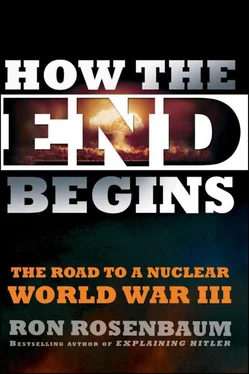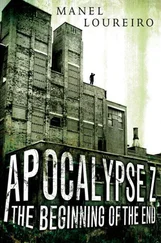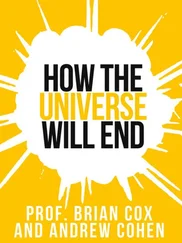And I would look upon it as the best we could do in a hopeless situation, where our only choice may be how totally devastating the next nuclear war will be. Maybe the neo-Burkean minimalist plans are a way to some small less-than-world-holocaust number of nukes. I’m not hopeful but it seems to me that if there’s a way to reduce the chance of a “world holocaust” we would be derelict in not trying it.
The remaining question is that of rogue nations such as North Korea, Syria, or ones like Iran that proclaim that they cannot be deterred by massive population losses because of their suicidal martyrdom/Hidden Imam ideology/theology. That is one reason I focused on the Israeli raid on the Syrian reactor in 2007. And that chilling quote, “If people had known how close we came to world war three that day there’d have been mass panic.”
The world didn’t know, the raid didn’t result in a Third World War, but the next raid, or one like it, or one initiated by another nation could be the one to go global. Perhaps mass panic would have been salutary. Mass complacency is not.
Here is the last limited role for the nuclear-armed bomber fleet, perhaps. Getting rid of the lethal and destabilizing rogue nation warheads is the fastest, best way to make a world holocaust less likely. Bombers at least are under human control up till the last minute, and unlike ballistic missiles they can be called back. If preemption of a rogue state is required, a small bomber force might be necessary and bombers have the advantage of being able to convey menace, to deter without dropping a single bomb.
Personally, I can’t get enough of listening to the nuke pros on the armscontrolwonk.com blog talk shop. Following the release of the Burke papers in the electronic briefing book, there was an epic discussion in the comments section about what aspect of the triad was dispensable and what weapons and warheads should be retained. Military, ex-military, and military wonks and strategists chimed in. It was fascinating but it’s clear there’s no consensus as to what to do with all the nukes, how to base them, how to reduce them, who should operate them. And these are mainly Americans arguing with mainly Americans. Imagine the exponential difficulty of carrying out a negotiation with the Russians when they have their own crowd of rowdy military theorists and competitors catcalling from the stands.
There is no consensus, there may never be, it’s probably too late for that, it’s probably too late to reduce the role nukes will play in the future—or lack of future—of civilization. It’s beyond our ingenuity or goodwill. It’s all about luck now. I’m a pessimist. I think only luck has saved us regardless of the configuration of nukes we deploy and our luck is bound to run out before we find a way to eliminate nukes. We cannot escape from the Faustian bargain we made.
But to give up and to give in is not like us. For all we know our American obsession with solutionism might someday produce a solution. It hasn’t yet, there may be no way to succeed but there are many ways to try that have yet to be tested. I’m proposing one: Arleigh Burke’s minimal subbased deterrence + de-alerting + destroying land-based missiles now. You have a better one? Write me. Maybe we’ll save the world. There’s still time, brother.
And who am I to advocate a nuclear weapons plan? An obsessed outsider, an amateur student. But the pros have failed! The pros have gotten us into this jam. The pros, the so-called wizards of Armageddon, pro- and anti-nuke, can’t agree on a thing. Look where it’s led to: defending “minimal” nuclear war, which is about the same as defending “minimal” genocide. Zero may be the only answer, but Zero seems out of the question.
And so this desparing message is for everybody, not just for those who have access to the keys. I’ll never forget a lovely white-haired woman at a Hiroshima Day anti-nuke protest in Boston back in the 1970s who explained her refusal to pay taxes, because part of her money was going to support nuclear weapons. She was not saying the Cold War was one of moral equivalence. She was making an exceptionalist argument: she was just saying she didn’t want to feel she’d contributed in however slight a way to a nuclear holocaust, or more likely then, a “world holocaust.”
So we can’t stand above the battle if we pay our taxes. We’re all responsible for what’s done in our name.
All I can say is—if this were my letter of last resort:
If you’re in a position to launch, whoever you are, now or in the future, if you’re in a position to send the targeting codes, if it’s up to you, whoever you are, my plea is: Nothing justifies following orders for genocide. Don’t send those codes, don’t twist those keys.
Able Archer, Operation, 7, 113, 127, 232
Abolishing Nuclear Weapons (Acton and Perkovich), 227–28
Acton, James, 227–28
Ahmadinejad, Mahmoud, 137, 140
Allison, Graham, 5, 131
Al Qaeda, 16, 18, 29, 236
Alston, C. Donald, 63–67
Amar, Akhil Reed, 37
Andropov, Yuri, 7, 112–13
anti-ballistic missile (ABM) treaty, 55
Assad, Hafez al, 174
Aziz, Tariq, 203
Baker, James, 203
Ballistic Missile Defense (BMD), 12–13, 24, 27
Begin, Menachem, 140–41, 145–46
Belgium, 206–7
Bennett, Tim, 23
Beres, Louis René, 161–62
Berkowitz, Peter, 43, 79
Bhutto, Benazir, 17–18
bin Laden, Osama, 18
Blair, Bruce, 88–110, 218–32
Burt’s relationship with, 231–32
on conventional weapons, 221–22
on eliminating nuclear weapons, 90, 95, 98, 218–22, 226–32
on EMPs, 106–7
letter to Bulletin of the Atomic Scientists of, 103–5
on Looking Glass plane, 95, 100, 106–7
on morality, 222–23
NPRs and, 209
on nuclear weapons command and control, 38, 53, 62, 90–98, 100–110, 119–20, 215–16, 218–26, 232, 234–35
on PERIMETR, 88–92, 107
on preventing accidental use of nuclear weapons, 119–21, 123
on reconnaissance of Russia, 98–100
SIOP and, 93, 97, 99, 222
work in Russia of, 90, 93–94
Yarynich’s relationship with, 93–94, 110, 119
on Yom Kippur War, 220–21
Bonner, Raymond, 16
Brookings Institution, 38, 90, 94, 96, 218
Brzezinski, Zbigniew, 6–7, 127
Bulletin of the Atomic Scientists, 103–5
Burke, Arleigh A., 239–44, 256–59
Burke documents, 237, 239–45, 259
nuclear submarines and, 241–44, 256–57
on nuclear weapons reduction, 240, 256
on retaliatory deterrence, 242–43
Burr, William, 237–39, 245, 247
Burt, Richard R., 228–36
Blair’s relationship with, 231–32
Cold War and, 228, 232–33
on eliminating nuclear weapons, 228–35
on reducing number of nuclear weapons, 231, 233–35
Buruma, Ian, 145–46
Bush, George H. W., 50, 120, 228
Bush, George W., 29, 119, 121, 198
on conventional weapons, 14–15
Georgia crisis and, 202–3
Iran and, 9, 181
missile defense systems and, 8–9, 206
normalizing nuclear weapons use and, 23–25
NPR of, 23, 55, 209
on nuclear weapons command and control, 34, 39
Pakistan and, 16
Syrian nuclear facility and, 182, 185, 187, 191
Calder Hall nuclear reactors, 171, 184, 190
Canada, 10
Canterbury Tales (Chaucer), 45
Carnegie Endowment for International Peace, 5, 90, 218, 227
Carter, Jimmy, 6–7, 60, 246
Castro, Fidel, 6
Center for Strategic and International Studies (CSIS), 21, 142
Central Intelligence Agency (CIA), 6, 166, 173–74, 176, 204
Syrian nuclear facility and, 170–71, 173, 182, 185
Читать дальше











